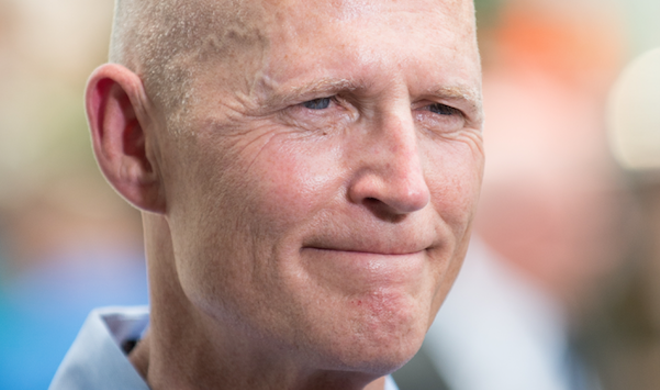Gov. Rick Scott is challenging a judge's ruling that requires him to overhaul Florida's system for restoring the voting rights of former felons.
The motion, filed by Attorney General Pam Bondi's office, requested a stay of the order issued by U.S. District Judge Mark Walker last month while the case moves to the federal appeals court.
"The injunction in this case does not just prevent the state from effectuating state law," the motion said. "It also directs four of the state’s highest-ranking executive officers to revamp a 150-year-old vote-restoration scheme in 30 days. A federal court order requiring state officials to come up with new state policies impinges on the sovereignty and autonomy of the state."
Walker gave Scott and Cabinet officials until April 26 to create a new process to replace the current unconstitutional "scheme" that Walker deemed "nonsensical."
"Florida strips the right to vote from every man and woman who commits a felony," Walker wrote in February. "To vote again, disenfranchised citizens must kowtow before a panel of high-level government officials over which Florida's governor has absolute veto authority. No standards guide the panel. Its members alone must be satisfied that these citizens deserve restoration … The question now is whether such a system passes constitutional muster. It does not."
In Florida, convicted felons are permanently stripped of their voting rights, and it's estimated about 1.5 million Floridians have been disenfranchised by these rules. To get their voting rights back, former felons must go through an arduous clemency process. They must wait five to seven years after completing their sentence to apply for clemency, and after that it can take years to get a hearing before Scott and the Cabinet, who make up the clemency board. The board meets quarterly and hears less than 100 cases, with Scott having the power to veto any request.
Former Gov. Charlie Crist made the process easier during his tenure by automatically restoring the voting rights for people with nonviolent felony convictions. But after Scott was elected in 2011, he made it harder for felons to get their voting rights back, leading to a current backlog of more than 10,000 cases, according to the Tampa Bay Times.
In a statement, Scott spokesperson John Tupps said the governor would "always stand with the victims of crime."
"People elected by Floridians should determine Florida's clemency rules for convicted criminals, not federal judges," he said.
Stay on top of Orlando news and views. Sign up for our weekly Headlines newsletter.


